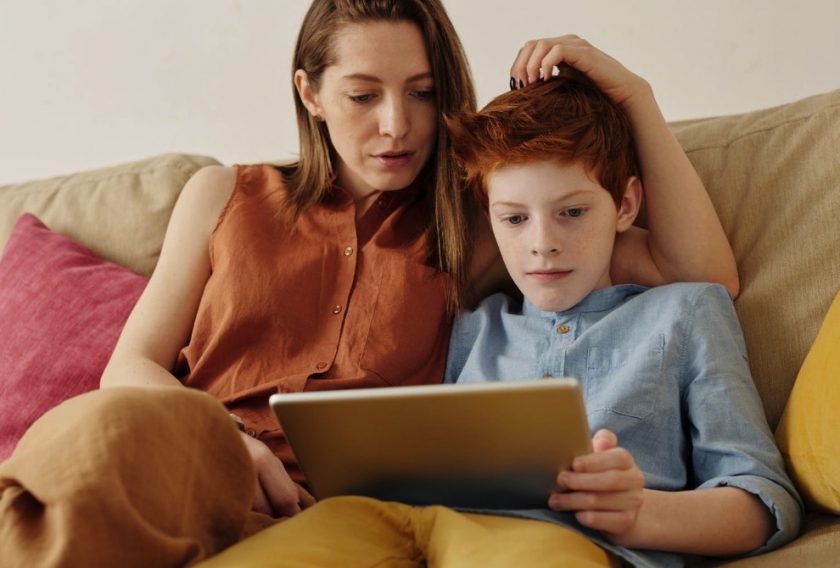Safer Internet Day: Half of young people encounter misleading content online on a daily basis

To mark Safer Internet Day, new research released today by the official coordinators the UK Safer Internet Centre (UKSIC), shows young people’s experience of misleading content online as well as the strategies they are using to manage this.
This year’s Safer Internet Day comes amidst Coronavirus restrictions that mean families are continuing to spend extended periods of time at home and parents’ concerns about their children’s safety online are likely to intensify.
The internet has become a fundamental part of young people’s education, with most young people taking part in lessons amidst lockdowns, which caused school closures nationwide.
UK Safer Internet Centre surveyed 2,021 parents of children aged 8-17 years old and their children aged 8-17 years old – 4,042 in total.
The research found that 51 per cent of young people surveyed are encountering more misleading content online now than in the previous year.
Up to 48 per cent of young people surveyed said they encountered misleading content at least once a day or more frequently, with 24 per cent of young people encountering it 2-5 times a day.
The research highlighted how likely young people are to fall for misleading online interactions, with 63 per cent of them saying they would be likely to fall for things like gaming scams, sneaky/hidden sponsored ads, filtered/edited imagery on social media and stories from unofficial sources.
There can be a negative emotional impact that comes with encountering misleading content online, with 91 per cent of young people feeling either annoyed, upset, sad, angry, attacked or scared at encountering various misleading interactions.
Kirsty Williams, Wales Education Minister said: “This year’s UK Safer Internet Day theme is extremely fitting for the current climate and the Welsh Government is fully supportive of the campaign.”
“Over the past year we have seen many examples of conspiracy theories, fake news and scams circulating online and being able to recognise misinformation is more important now than ever before.”
“In Wales we see Safer Internet Day as an excellent opportunity to highlight the importance of critical thinking and called on schools to get involved by enter our ‘Tackling Misinformation’ digital storytelling competition.”
“It is essential that our children and young people are supported to become responsible digital citizens.”
“This includes equipping them with the skills to be able to think critically to identify misinformation, educating them on the devastating impact it can have on individuals and whole societies, and understanding how they can protect themselves and others from its influence.”
In support of UK Safer Internet Centre’s Safer Internet Day, the NSPCC has spokespeople available to offer advice to parents to help them keep their kids safe online.
The charity will be supporting the day in keeping with the theme of Together for a better internet by sharing helpful content with parents, as well as advice for young people via Childline.
There will also be helpful guidance and training for professionals about the importance of online safety on NSPCC Learning.
Parents and children will be able compete against each other in O2 and the NSPCC’s fun Net Aware quiz, which includes key messages about keeping safe.
This year’s Safer Internet Day comes amidst Coronavirus restrictions that mean families are continuing to spend extended periods of time at home and parents’ concerns about their children’s safety online are likely to intensify.
NSPCC and O2’s co-created website Net Aware helps parents keep their kids safe online, so they can explore the endless possibilities the online world offers, and safely navigate any risks.
They have recently launched an Online Safety In Lockdown Hub with tips and advice about making the most of the internet safely during the pandemic.
Kate Edwards, NSPCC Senior Online Safety Manager said: “With children spending more time online, learning and staying in touch with friends during lockdown, Safer Internet Day is an important event for us all to help keep kids safe.”
“Social networks have been a lifeline for children during the pandemic but use of them does still come with risks.”
“It’s important children have support from parents and carers through open and trusting relationship’s and regular conversations about what they are doing online.”
“Our Net Aware website, run in partnership with O2, is here to support parents have those conversations by providing advice on the most popular apps, sites and games children are using.”
Net Aware brings together the NSPCC’s expertise in protecting children and O2’s tech know-how, with everything parents need to keep their kids safe online.
Safer Internet Day resources:
- 8 tips for keeping your kids safe online during lockdown
- How can we teach kids to spot fake news online?
- There’s also a fun quiz for parents and children to take part in for Safer Internet Day
- Net Aware’s Online Safety In Lockdown Hub has tips and advice about making the most of the internet safely during the pandemic
- The UKSIC Safer Internet Day resources are available here
Spotted something? Got a story? Email: [email protected]
Latest News
